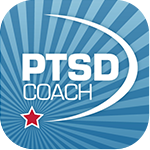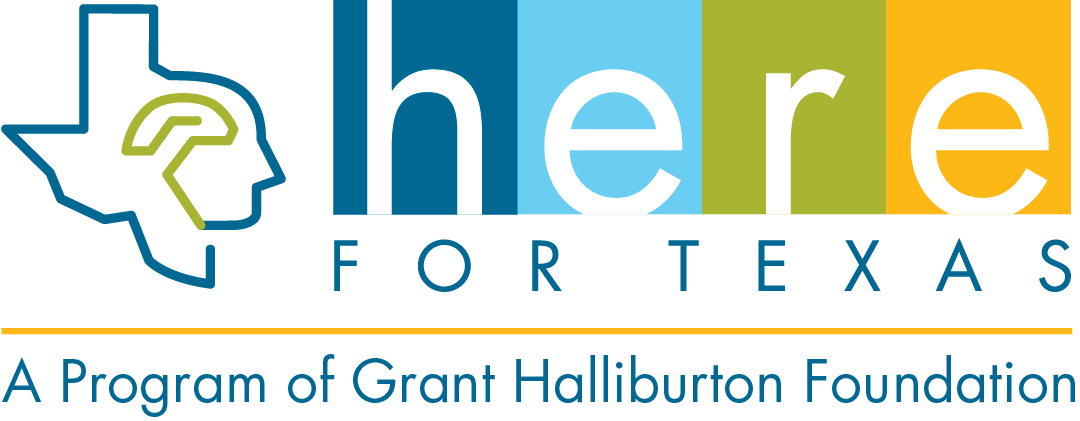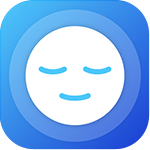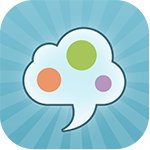
Types of Support for Mental & Emotional Health
There are many options for help with supporting the mental and emotional health of others and ourselves. Anyone can learn how to provide support or access resources such as peer support groups, mental health apps, books for self-help strategies, as well as faith and religious leadership.
If you are searching for a mental health professional who can help with medication management, psychotherapy, or brain stimulation interventions, browse our Education section for information or call our Here For Texas Mental Health Navigation Line to speak with a trained navigator who can help you explore options.
Connecting with Others
Social relationships are extremely beneficial to maintaining mental health and overall well-being. If you can, make it a point to reach out to friends or family for support and connection.
If you are in a relationship, spend time with your spouse or partner. If going out regularly is difficult, set aside time each day to reconnect, even if just for a cup of coffee together.
Find group activities like book clubs, exercise classes or clubs to help build and maintain social relationships while managing your mental health.
If you cannot find people to connect with in your area, try online communities and forums.
Technology Support Resources
The internet offers many helpful apps and websites with positive information and healthy self-care tips.
Mental Health Apps

|
|
Recovery Record is an eating disorder recovery app to use for self-help or to link with your treatment team to help you achieve lasting recovery. It replaces pen-and-paper mood and meal monitoring homework with a discreet and easy app that allows you to keep a record of meals, thoughts, meal plans, reminder schedules and more. |

|
|
NOCD offers live video-based therapy for Obsessive-Compulsive Disorder (OCD) and in-between session support, right in the NOCD platform. Through the app, you can get matched with a licensed OCD therapist from the comfort of your device and start effective OCD therapy via video, text, and more. |

|
|
PTSD Coach was designed for those who have or may have Posttraumatic Stress Disorder (PTSD). The app provides education about PTSD, information about professional care, a self-assessment for PTSD, opportunities to find support, and tools that can help you manage the stresses of daily life with PTSD. |
To explore additional apps, go to Mental Health Apps.
Websites
Possibility Change is a community blog featuring stories from people of all ages and backgrounds around the world. While each story addresses a unique topic, all the stories are related to personal change.
The Happy Newspaper is a platform for sharing positive news and celebrating all that is good in the world.
Goodlife Zen offers weekly practical inspiration. Get a new take on life, learn ways to reduce stress, or find creative ways to become what you aspire to be.
Self-Care Strategies
Establish Routines
Having a routine can lessen stress throughout the day.
If you are prescribed medication, remember to take it according to your doctor's instructions. Establishing a regular medication routine or setting reminders can help you stay consistent with your dosages.
Get Good Sleep
Getting a good night's sleep is one of the most important things you can do for your mental well-being. Your body and mind can heal and process information while you sleep, enabling you to handle your waking life better.
Try to stick to a regular sleep schedule to regulate your body.
Having a bedtime routine can help you fall asleep faster. Try journaling, meditating, or reading 20 minutes before bedtime.
Avoid TV, video games, and other electronics 30 minutes before bedtime to help your brain wind down for sleep.
Nourish Your Body
Sometimes stress or mental illness causes unexpected changes in appetite, which can lead to under- or over-eating. This can leave you feeling foggy-headed, dizzy, and tired, and it can be harmful to your overall health.
Choose foods you enjoy and that leave you feeling energized and satisfied.
Stay hydrated, especially in hot weather.
Share a meal with friends or family. It can be a great way to connect while enjoying good food.
Exercise
Self-care means taking care of not only your mind, but also your body. Exercising releases endorphins in your brain, elevating your mood and lowering your stress. It also improves blood flow throughout the body, leaving you feeling refreshed and energized.
There’s no need to push yourself too hard or engage in exercise routines you don't enjoy; even light activity like walking or playing sports can benefit your health.
Inviting a friend or family member along can make exercising a fun, social activity.
Yoga with Adriene is a YouTube channel that helps you stretch, build core strength, and practice deep breathing, all from the comfort of home.
Practice Deep Breathing
Take in slow, deep breaths and breathe out slowly, focusing on the rise and fall of your lungs.
Practice deep breathing at least once a day. It's a great way to get your day started, center yourself during the day, or wind down for bed.
Enjoy Music
Listening to or playing music that matches your mood can help you let out some energy and emotion.
Soothing, relaxing music can also help you calm down and unwind.
Explore Hobbies
Any hobby or activity that brings calmness without causing harm to self or others can help you cope with stress. Some mindful, relaxing activities you may enjoy are:
Reading
Journaling
Playing with a pet
Coloring
Practice yoga
Playing an instrument
Guided meditations
Going outside for a walk in your neighborhood or in a park
Set Healthy Boundaries
Setting healthy boundaries preserves your mental well-being by ensuring that you don't over-exert yourself.
Engage in activities you enjoy.
Spend time with people you care about.
Say “no” if you need to make time for yourself.
Support Groups
Support groups are meetings or organizations of individuals who are struggling with a shared challenge or experience such as a mental disorder, life change, grief, trauma, physical illness, relationship issue, or family problems.
A support group provides a place for participants to share common concerns and emotional support. Some support groups are peer-led, while others may be led by a mental health professional. A well-run support group fosters a sense of community and comfort, as members find others who are experiencing similar situations and understand how they feel. Being with peers can be healing and beneficial — it can make people feel less lonely and isolated, and more connected to and understood by others. Support groups are not intended to replace therapy, but they can be a valuable addition to therapy.
Where can you find help?
If you need help finding resources, call the Here For Texas Mental Health Navigation Line at 972.525.8181 and speak to a trained navigator for guidance, information, resources and support. This free service is available Monday-Friday from 10 a.m. to 6 p.m. Se habla Español.
12-Step Recovery Programs
Twelve-step programs have long been an important part of the recovery process and the basis for many recovery programs. Pioneered by Alcoholics Anonymous, these programs are designed to assist in recovery from addiction or compulsive behavior, based on the principles of acknowledging one's personal insufficiency and accepting help from a higher power.
Nonprofit Organizations and Social Service Agencies
Nonprofit organizations and social service agencies can provide mental health support in a variety of ways. Agencies may provide low-cost mental health treatment, support groups, or other activities to help individuals build connection. Some may offer activities for the individual with mental illness, as well as for the parents, siblings, and other family members.
Some nonprofit organizations focus on providing education, mental health training, and advocacy for policy change at the local, state, and federal levels. These agencies offer great opportunities for individuals to get involved in the mental health community and help effect change.
Grant Halliburton Foundation is an example of a nonprofit organization that provides mental health and suicide prevention education, support groups, and volunteer opportunities. The Here For Texas website and Mental Health Navigation Line are among the programs offered by the Foundation.
Faith-Based Organizations
Faith-based organizations such as local congregations, community organizations, hospitals, and charities may provide or host mental health programs and services. These programs may be nondenominational, welcoming of all faiths, or they may be aligned with a specific religion. These may be facilitated by a lay leader or an accredited mental health professional who integrates therapeutic techniques with connections to participants' religious beliefs and spirituality.
Employee Assistance Programs
Employee Assistance Programs (EAPs) are worksite-based programs and resources designed to benefit both employers and employees. EAP benefits for employees (and often their families) include services and referrals related to mental health, drugs and alcohol, and challenging emotional and personal issues, such as divorce.
How do you know if your workplace offers EAP?
Contact the human resources department and ask if the company offers EAP benefits for its employees. If it does, ask about the procedure for accessing services and inquire about limitations. Most programs provide five to six therapy sessions with a mental health professional at no cost to the employee and family members living in their household.
Self-Help Resources
In addition to seeking professional treatment for psychiatric disorders or mental health issues, individuals can work on problems themselves through a process of self-help. Self-help for mental health involves learning about one’s specific disorders and emotional issues, learning how they can be resolved, and then choosing and pursuing a course of action that will support recovery and resolution of those issues. Self-help resources include books and publications, educational websites and participating in support groups.








